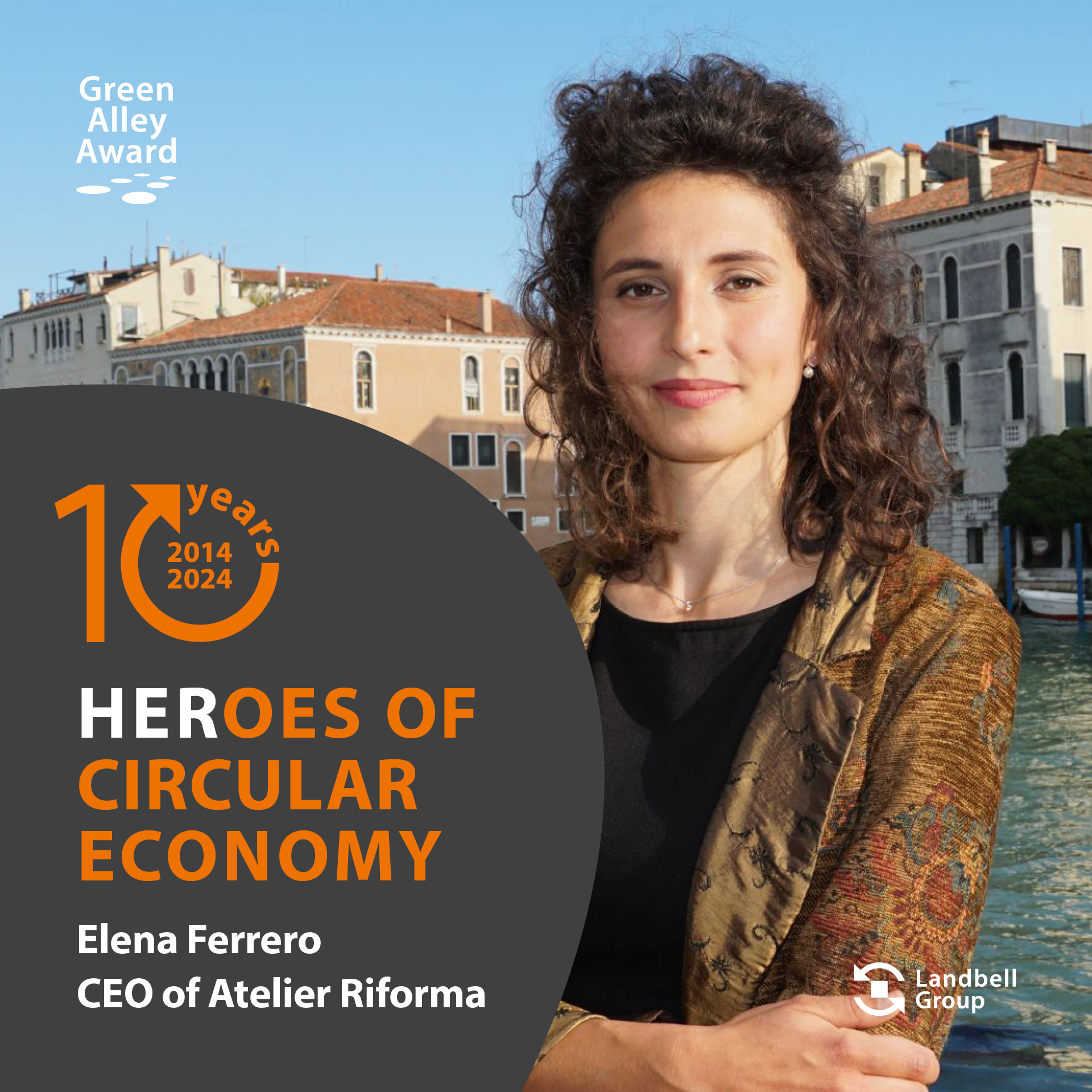
HERoes of the circular economy – Interview with Elena Ferrero
In the dynamic landscape of entrepreneurship, women are emerging as formidable leaders, driving innovation and sustainability in the startup ecosystem. This is very evident within circular economy sector, where visionary female entrepreneurs are at the forefront of transformative change. The circular economy, cantered around principles of recycling, reusing, and reducing waste, has become a important industry for innovative startups dedicated to addressing pressing environmental challenges.
We had the chance to interview Elena Ferrero from Atelier Riforma, a 2022 Green Alley Award Finalist. We delved into her story and the foundation of the startup to understand the stories of pioneering women who have carved a niche for themselves in the circular economy startup space. With groundbreaking initiatives females’ entrepreneurs are not only reshaping industries but also leading the charge towards a more sustainable and circular future.
In recent years, women have been increasingly visible in circular economy startups. What strategies and resources do you think are essential for women entrepreneurs striving to excel in this field?
All those that favor female entrepreneurship in general. I mean: support by the Government to ensure that motherhood and family life are not incompatible with one's professional aspirations and career; fight the gender pay gap; encourage girls to undertake and continue education focused on science and technology. Also awards and programs that give voice and prominence to startups led by women, such as the Green Alley Award, can absolutely help to demonstrate that women at the head of a startup are as credible as men who hold the same role.
Can you share your journey on securing funding for your circular economy startup? What were some of the challenges and successes along the way?
Since our startup was established in 2020, it has been very difficult to raise investments. Our business has always been considered too complex, unprofitable in the short term, dedicated to a product (textile waste) with low value. Moreover, we started from scratch, without financial support or backing. It is quite difficult in Italy to find investors for early-stage startups, particularly if you have a strong social vocation. Italian investors are not inclined to risk and tend to invest mainly in the most traditional and safe businesses. We have received many recognitions and awards, but we had to adopt the so-called "bootstrapping" strategy to stay afloat and I don't deny that at times we felt very discouraged. Finally, about a year ago, we received our first larger investment, led by women and dedicated to sustainability. That investment allowed us to give boost to the technological development of Re4Circular, but also to believe more in ourselves.
Why is the circular economy important to you personally, and how does it align with your values and vision?
I strongly believe in the circular economy. It is an approach that in the past was used to save money, but which today we must necessarily adopt in a sustainbaility perspective, if we do not want to risk our planet being completely eroded of its resources and covered in our waste. I think that more and more in the future, in any field, circularity will be essential.
Fashion is a significant industry in terms of sustainability challenges. What drew you to address these issues in particular, and how do you see your startup making an impact in this sector?
Personally, I have always been fascinated by the creative potential of reuse, reconditioning, transformation and recycling. And these concepts apply perfectly to the fashion industry. Over the time, I learned how necessary thy were. The fashion industry has a huge problem of overproduction, exploitation of virgin resources, planned obsolescence and littering of waste into the environment. The circular economy can truly be the way out for all these problems. Our solution, Re4Circular, serves precisely to facilitate the transition of the fashion industry towards a more circular model. It helps manage textile waste in a sustainable and transparent way and encourages fashion companies and professionals to use it as a resource in their circular business.
As a female founder, what message would you like to pass on to young generations, especially those who aspire to make a difference in the circular economy field?
Don't be discouraged by the obstacles you will surely encounter on your path: if what you are working on is good and useful to the world, it is worth the time and the effort you put into it. Even if you fail, you will learn a lot and will know how to leverage the knowledge in your next circular economy project. The world desperately needs people who actively decide to be part of the solution and not the problem.